What is a Property Management System and How Does it Work?
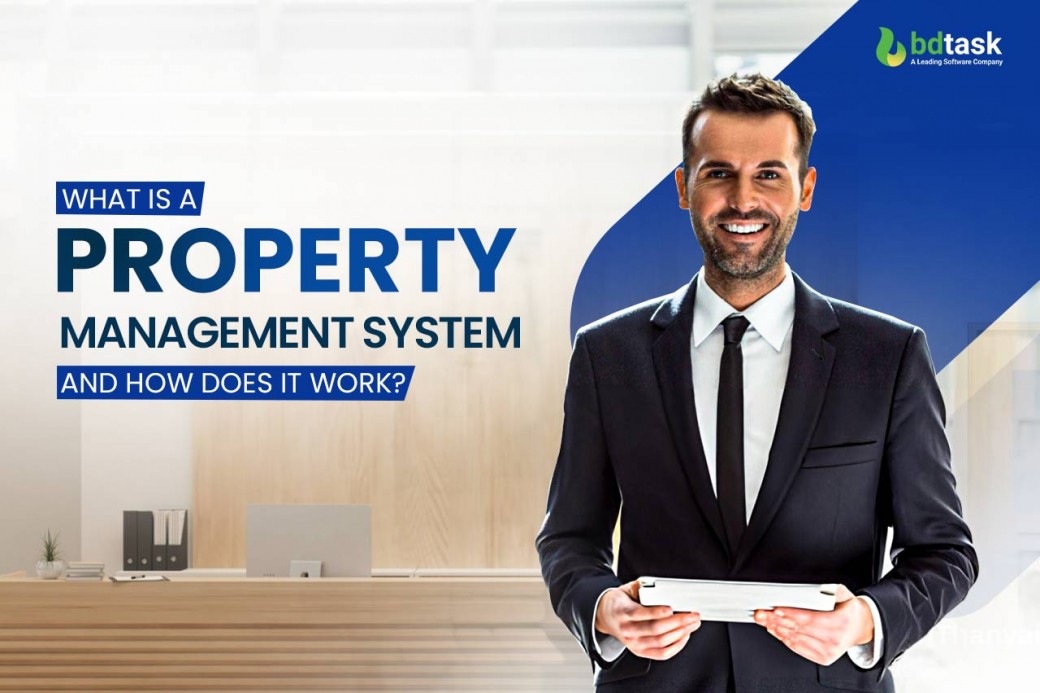
Business Property management is considered one of the most challenging tasks for the business owner. In the past, business management was manual, which means that all the tasks were managed manually.
But today, with the help of advanced technology and systems, all business management can be handled automatically. It will be a wise decision to implement your business property with an updated business management technology.
So, first, you have to know what is a property management system. If you know the property management software in detail, it will be much easier for you to centralize your business management accurately with the proper management system.
What is a Property Management System
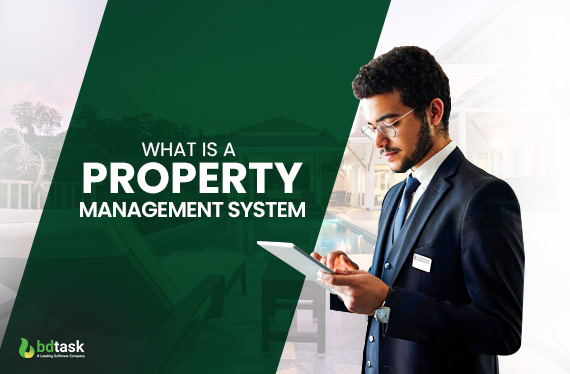
A property management system(PMS) is software established to operate all the activities and functions in the hospitality industry.
However, a property management system is usually considered a hotel management system. You can also use these PMS software for real estate, manufacturing, different types of vacation rental businesses, or other types of accommodation business sectors.
PMS software is not only software; it is a complete solution for hospitality management. It provides all the services, such as scheduling, organizing, accounts, booking, and many other different types of activities.
The primary purpose of any business is to improve customer experience, enhance productivity, and increase profits. To run a business properly, every business owner needs to implement a system that can smoothly operate all its functions.
The PMS system is one such system that every hospitality business should use to enhance its productivity. So, there is no doubt that the benefits of property management system are extremely high.
Types of Property Management System
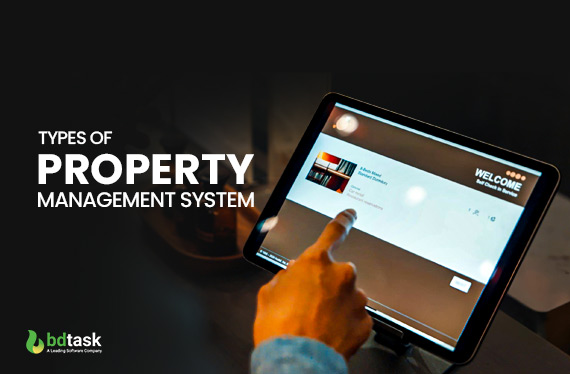
As we know, PMS software is highly integrated with advanced multi-function properties. Its uses and market are rapidly increasing. There are two core property management software.
Let's discuss those two core types of PMS software in detail.
-
Cloud-based property management system
A cloud-based property management system (PMS) is web-based software that helps manage the hotel operation through an automated process. It is designed to be hosted in the cloud and does not need any hardware or server to provide property management solutions. Cloud-based PMS software serves as software as a service, allowing its users to access it from smartphones and many other different devices.
Advantage of Cloud-based property management software.
- Accessibility
- Update Automatically
- Flexibility
-
On-premise property management system
An on-premises property management solution is installed and hosted on a specific hospitality server. It allows its users to manage the software and hardware directly. On-premise property management software provides services based on business needs. As it is developed to be installed on a particular device, it provides maximum data security.
Advantage of On-premise property management software.
- Customization
- Strong Data Security
- Existing Hardware Integration
Property Management Software Features
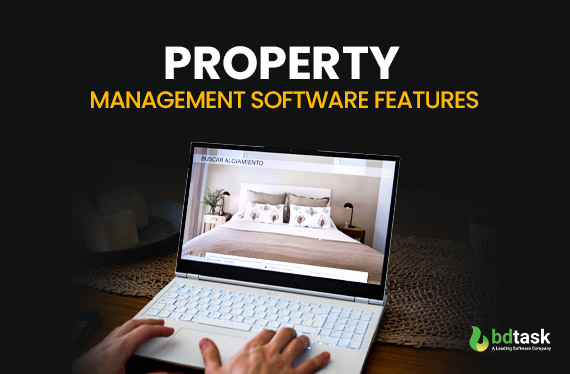
It is a great advantage if you find any technology that understands your business thoughts and provides a system based on your needs to manage your businesses. Property management software is one of those systems that has a wide range of features or functions. You may then ask What are the functions of PMS? The functions of property management systems can be different, depending on the sector you are using.
Now, let's explore the features of property management software.
1. Front Desk Management
Front desk operations are one of the most important features of a property management software. An updated and well-performing front desk management system can smoothly operate the front desk activity, increasing the performance of any hospitality business operations. A front desk module has been established to make the task easier for the front desk manager or staff.
Let's find out the sub module task that is performed under the front desk management.
- Front Desk Dashboard
The front desk dashboard allows the staff or manager to manage daily operations. It provides very quick information about the entire hospitality sector, such as real-time room availability, upcoming arrivals or departures, guest details, special requests, and so on.
- Room Assignment
Room assignment is considered one of the most critical parts of front desk management. It helps perform multiple tasks, such as automated and manual room assignments, room blocking, conflict resolution, and room status updates.
- Overbooking And Walk-In Management
The Overbooking and Walk-In Management modules have great advantages in the hospitality business. Overbooking management has specific tasks like configuring an overbooking strategy, prioritizing guests, managing alternative accommodation, offering incentives and compensation, and creating overbooking reports. On the other hand, walk-in management helps manage guest profiles, rate management, guest special requests, etc.
- Lost And Found Management
The lost and found management module is an important part of the dynamic dashboard. This module increases customer satisfaction in the hospitality industry. The lost and found module helps with item logging and tracking, finding guest notifications, inventory management, disposition policies, organizing storage, and an effective claim process.
2. Reservation System
If you are looking for the core functions of a property management system, then definitely the reservation system. The reservation system is the module that allows its users to make online reservations and bookings.
It is a process that is not only applicable to the hotel business but also applicable for transportation, different types of events, gyms, and tours. It means it covers all the hospitality industry. Room reservation is also referred to as a central reservation system.
Find out the sub module of the reservation system.
- Room Bookings
The room booking system can check the room status, such as whether the rooms are available or not. If a room is available, it will show up on different websites and channels. One of the most advanced parts of this module is that it allows group reservations and double bookings.
- E-payment
Online transactions are very popular in the hospitality industry. This module allows online transactions and stores all the information about payment details.
- Email Reservation
The reservation email system automatically sends emails to customers who complete their bookings. This improves customer satisfaction and creates loyalty.
- Activity Booking
The activity booking system allows users to book different types of activity along with the room reservation.
3. Booking Engine
Booking engines are vital features of property management software. They are applications that are integrated with the hospitality business industry website or with social media site pages, enabling direct online reservations and billing process.
One of the booking engine's best parts is that it can be easily integrated with the hospitality business industry's existing website.
Let's look at the advantages of the booking engine.
- Direct Sales
As we know, booking engines have the function of attribution to the website or social site pages directly, so they allow the user to book a reservation directly through the booking engine with all-time services. It helps to boost sales and create brand awareness among users.
- Fulfill Guest Experience
Every customer wants a hassle-free reservation or booking experience. When a customer visits your booking website and gets all the services available without facing any problems, it creates a positive effect on their mind. This is how a booking engine helps to meet the customer's expectations and enhance guest experience.
- Building Revenue
Booking engines allow multiple services to be added to an industry's personal website. They also increase customers' shopping experience and play a big role in increasing revenue.
4. Channel Management
Channel management features refer to managing inventories and distribution of different types of services in the hospitality industry across multiple offline and online channels. This channel involves global distribution systems, online travel agencies, various sales platforms, traditional travel management agents, direct booking engines, and many more. With an effective channel management system, the hospitality industry can reduce overbooking and maximize revenue.
- Control Centralized
Channel management has an updated sub-module that is centralized control. It has an interface that manages all the distribution channels. It makes it easy to monetize and update automatically.
- Inventory Management
An automated inventory adjustment system can maintain the entire inventory level with real-time booking data. It keeps the inventory system updated and reduces overbooking risk.
- Rate Management
Rate management is one of the most powerful submodules of channel management features. It helps to ensure that the price is the same in all channels, avoiding customers getting confused or upset. This submodule can adjust room rates and pricing based on market conditions and demand.
- Integration With PMS and RMS
Channel management integrates with revenue management and property management systems. It ensures a two-way data connection between the system and the channel manager, keeping data updated and smoothing data flow.
5. Housekeeping
Housekeeping is a very important function in an Innovative property management system. It ensures that the guest rooms and common areas are well-maintained, neat, clean, and ready for use. An Effective housekeeping management system enriches guest satisfaction.
Here are some key features and functions of the housekeeping module.
- Tracking and Task assignment
Advanced tracking and task assignment features help create a list of daily tasks according to room status, such as check-in rooms, check-out rooms, stay-over rooms, etc. Then, it automatically assigns tasks to the housekeeping staff based on their responsibility and availability.
- Room Status Updates
Room status shows the current status of the doom (like the room is dirty, clean, cleaning in process, or inspected) in a dynamic dashboard that the front desk staff can monitor.
- Maintenance Requests
Maintenance requests allow housekeeping staff to send maintenance issues or reports directly to the maintenance team, which leads to immediate maintenance solutions.
6. Revenue Management
Using data analytics and strategic pricing, revenue management in the hospitality sector targets to increase the total hospitality business earnings. This process involves managing inventory properly, optimizing prices, and guessing consumer behavior.
Here are the key sub module of revenue management:
- Dynamic Pricing
Dynamic pricing uses different types of algorithms to set the desired price for generating the highest revenue based on the competitor's pricing.
- Inventory Management
Inventory management helps to allocate room inventory in many sales channels to manage room booking, which tends to minimize booking cancellations and increase revenue.
- Demand Forecasting
To predict future demand, examine historical booking patterns, seasonal trends, and market events. Make necessary adjustments to plans based on predictions of future booking behavior using predictive models.
- Competitive Analysis
To predict future demand, examine historical booking patterns, seasonal trends, and market events. Based on predictions of future booking behavior using predictive models, make necessary adjustments to plans.
7. Point Of Sale System
A point-of-sale system is an essential part of any hospitality industry. Most hospitality industries provide different types of hospitality services, especially hotels and restaurants that accept multiple payment systems. A point-of-sale system allows multiple transactions, tracks sales, and supports other operations linked to sales.
A robust POS system doesn't just offer advanced features to boost productivity and enhance visitor experience, it also seamlessly integrates with other systems, such as the Property Management System (PMS). This compatibility instills confidence in its ability to work harmoniously with existing systems.
Here are the essential components for a successful POS system.
- Employee Management
Hotel POS software can effectively manage your hotel employees, scheduling work shifts and monitoring staff hours. Additionally, it can keep an eye on sales and employee performance.
- Sales Transactions
The POS system can quickly and effectively process all sales transactions. Its most advanced feature is that it allows multiple payment methods, such as debit, credit, mobile, and cash.
- Order Management
In restaurants, it tracks orders, assigns tables, and checks on table status. In addition, it links room service orders straight to guest rooms and automates billing.
- Integration With Others System
Integrate and synchronize guest data and billing with the property management software. Furthermore, it can be integrated with accounting software to facilitate financial administration and synced with CRM systems to improve guest profiles and loyalty initiatives.
- Customer Loyalty, Security and Compliance
Track and manage prizes and points for loyal customers. Create and oversee special deals, discounts, and promotions.
8. Report And Analytics
Reports and Analytics are vital for business owners to monitor ongoing operations and company success. Property management systems play a key role in this, as they efficiently collect all hotel data, enabling hospitality business owners to access a wealth of automated reports.
A property management software can function as a business intelligence tool. It can also generate Night audit reports, housekeeping reports, shift audit reports, room and tax reports, departure or arrival reports, and many more.
Is Property Management System a CRM?
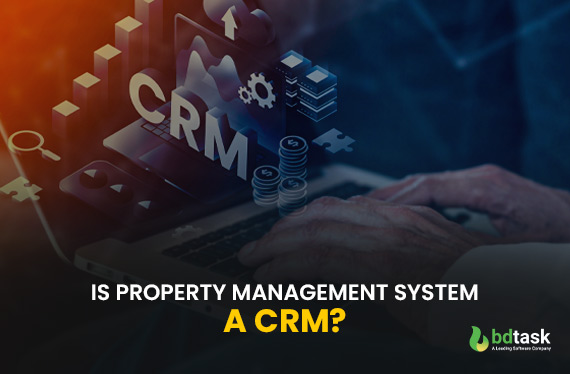
Customer Relationship Management(CRM) is a software program designed to control connections and maintain relationships with customers. CRM software is mainly established for customer communication, lead management, sales pipeline tracking, and for customer data analysis.
Property or Real estate agents often use real estate CRM software, like Salesmate to efficiently collect, arrange, and prepare leads, ensuring effective follow-up and customized communication with both existing and new clients.
Although CRMs and property management systems have different uses, their functionality is similar in some places. Both systems commonly provide contact management features that let users keep track of previous conversations and save information about clients and possibilities.
Furthermore, both PMS and CRM systems prioritize effective task management and reporting, which provides real estate professionals with insightful information about how their businesses are run.
By utilizing customer relationship management (CRM) software, hotels can more efficiently manage guest interactions across several touchpoints and consolidate customer data.
The hotel sector needs to catch up with other industries in terms of the widespread use of CRM systems.
According to Several Studies on the Hotel Tech Benchmark, just 20% of hotels globally—or about 32% of the hotel room supply—currently use CRM solutions to improve guest interactions.
Every customer wants more individualized care. "High-quality service" is the most important factor for 78% of travelers when they choose a hotel. In addition to standard staff politeness, visitors anticipate a wider range of customized services, such as a customized welcome package and well-chosen activities.
A CRM module can gather customer behavior data, from basic information like "special requests" and loyalty status to more complex insights like average expenditure, preferred amenities, and price sensitivity.
Directing data points from your booking engine, CRS, POS, PMS, and social media into a CRM solution can provide a great view of every customer. From there, you can create plans for your marketing, upsell, and cross-sell campaigns. Personalized marketing can increase revenue by 10% to 15% on average, depending on how well the business is executed.
Hotels frequently find it difficult to execute successful personalization initiatives because they need the required data. Or, more accurately, the incapacity to acquire it.
The CRM module can help automate the gathering of visitor data and a range of marketing tasks, such as in-app upsells and email campaigns. It also enables hoteliers to introduce new membership and loyalty programs to increase client retention and revenue yields.
List of Property Management Software
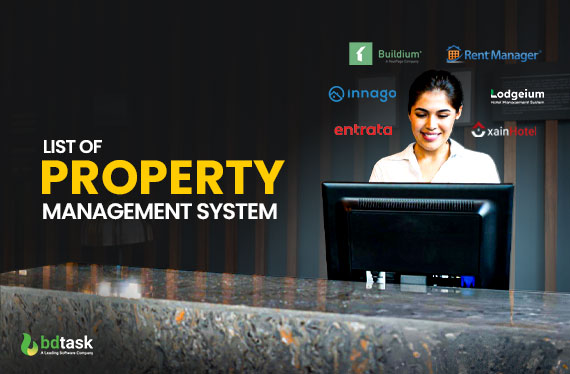
Property management systems can effectively manage and organize most of the functions in the hospitality business. However, only some PMS software is equally effective for business management.
It depends on how advanced the software is and how smoothly all the functions work. An effective property management solution should be the combination of multiple modules linked into a single software that performs easily.
Here is a list of some effective property management systems.
1# Xain
Are you looking for the best hospitality management solutions? Xain is a top property management system, especially for hotel property management. This software is designed to manage all hotel operations, from hotel reservations to online booking, customer management to room management, human resource management to inventory management, housekeeping to pool booking, POS billing, and many other functions.
You can visit the Xain website to view detailed information and a live demo of these extraordinary hotel property management systems.
Website: Xain
2# Lodgeium
Lodgeium is a hotel property management system with the most advanced features. It has features like a dynamic dashboard, front desk view, hotel payment system, hall room management, and spa and beauty salon management designed with advanced technology.
Lodgeium provides the best property management services, which cover the entire hospitality industry and ensure maximum revenue. This software also has customization flexibility, which means any business property owner can customize the software and add extra features according to their business model and requirements. If you are thinking about hotel PMS integration, lodgeium should be your priority.
You can visit the Lodgeium website and get a free trial.
Website: Lodgeium
3# Entrata
Entrata is a leading property management software that empowers property businesses and creates strong connections with customers through easy communication.
Its automation and flexible technology provide all the solutions for property business operators. Its market segment covers 48% of small businesses and 39% of mid-sized businesses.
Website: Entrata
4# Rent Manager
Rent Manager is a hotel management system built for commercial, residential, or different types of accommodation associations. Its fully customizable functions smoothly operate functions like accounting management, hotel room management system, marketing integrations, maintenance management, mobile applications, and so on. Rent manager is considered to be the best property management software.
It covers 85% of small businesses and 14% of mid-sized businesses.
Website: Rent Manager
5# Innago
Innago is free property management software that is easy to use. Its main concept is to provide excellent customer service and save time and money. With the help of Innago software services, users can easily list properties, manage works, collect rent, create applications, organize financials, and much more.
Website: Innago
6# Buildium
Buildium is an all-in-one cloud property management solution. It covers all the sections of the hospitality industry, such as communications, lodging management system, accounting, mobile applications, and leasing. One of the best features of Buildium is that it allows its users to use an online payment system and see the real-time property status. It is also known as the best hotel inventory management software.
Website: Buildium
7# ResMan
Resman Solutions provides all the services related to hotel management. It covers tracking property items, integration with another system, managing residents, advanced accounting, real-time reporting, and data analysis.
ResMan's innovative UI/UX turns complexity into clarity, increasing efficiency and saving valuable time. ResMan will help you succeed in today's competitive real estate market by combining innovation and elevating your property management.
Website: ResMan
8# AppFolio
AppFolio Property Manager is a powerful property management system that allows business owners to manage every size of the hospitality business sector, such as multifamily apartments, community associations, single-family homes, and so on.
It is a cloud-based software designed to automate and streamline business operations, from marketing to accounting and management to maintenance. Its market segment covers 88% of small businesses and 11% of mid-sized businesses.
Website: AppFolio
The property management system provides implementation management, comprehensive support, data protection, and access to innovation. On the other hand, custom property management software offers the possibility of additional revenue streams, complete software ownership, scalability, and extension.
So, before implementing any property management solution, you should know what is a property management system and how to utilize it for maximum revenue. The importance of PMS in hotel industry is extremely high. Property management software is widely used in the hotel industry. As we know, the hotel industry is a big industry, and hotels provide different types of facilities. So, hotel owners have to choose the best system from the list of hotel property management systems.










